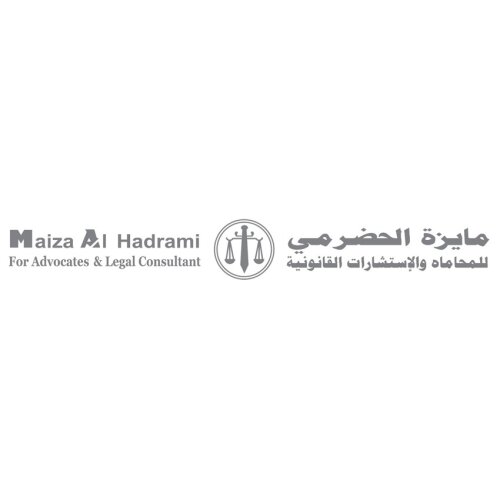Best Adoption Lawyers in Oman
Share your needs with us, get contacted by law firms.
Free. Takes 2 min.
Free Guide to Hiring a Family Lawyer
Or refine your search by selecting a city:
List of the best lawyers in Oman
About Adoption Law in Oman
Adoption in Oman is a sensitive and intricate legal process deeply influenced by cultural and religious beliefs. Unlike Western practices, adoption in Oman does not imply the complete transfer of parental rights. Instead, it operates under the Islamic practice known as "Kafala." This system allows for the guardianship of children, where individuals or families can take responsibility for a child's welfare without severing ties with the biological parents or granting the child the automatic right to inherit. Adoption through Kafala is meant to ensure the child's upbringing in a family environment while adhering to Islamic tenets.
Why You May Need a Lawyer
Seeking legal advice for adoption in Oman is crucial due to the complexity and sensitivity of the process, which intertwines with the country's religious context. Common situations requiring a lawyer include:
- Understanding the implications of Kafala and ensuring compliance with local laws.
- Navigating the permission and documentation requirements from local authorities.
- Assisting expatriates who wish to adopt a child in Oman and face additional bureaucratic hurdles.
- Guiding families through inheritance and succession planning, as adopted children under Kafala do not automatically inherit.
- Dealing with disputes or challenges that may arise during the adoption process.
Local Laws Overview
The key aspects of adoption laws in Oman that are especially relevant include:
- Kafala System: The cornerstone of child guardianship, where families provide care and protection to the child, ensuring that ties to their biological lineage are preserved.
- No Change in Name: Under Kafala, children's birth names, and connections to their biological families remain unchanged.
- Inheritance Laws: Adopted children do not automatically have inheritance rights under Omani personal status law.
- Mutual Consent and Welfare Focus: The process heavily focuses on the welfare of the child and requires mutual consent among all parties involved.
- Expatriate Considerations: Non-Omani residents must comply with additional regulations and often need legal representation for understanding and navigating these requirements.
Frequently Asked Questions
1. Can foreigners adopt a child in Oman?
Foreigners can act as guardians under the Kafala system, but the process can be more complex and may require additional legal steps and clearances.
2. What documents are needed for Kafala?
Generally, documents include identification papers, proof of residency, background checks, financial statements, and sometimes consent from both biological and prospective parents.
3. Does Kafala grant the child Omani citizenship?
No, Kafala does not automatically grant citizenship, as the child maintains their original nationality.
4. Are there age restrictions for adoptive parents?
While there are no specific age restrictions outlined, the process usually favors younger families who can ensure long-term guardianship and support.
5. Can an adopted child inherit family assets?
Under Kafala, adopted children do not have automatic inheritance rights but can be included in a will to receive a share of the inheritance.
6. Is it possible to reverse the Kafala guardianship?
Guardianship can be rescinded or modified through legal proceedings, especially if it's in the child's best interest.
7. How long does the adoption process usually take?
The duration can vary widely, depending on individual circumstances and compliance with all legal and procedural requirements, but it typically extends over several months.
8. Can single individuals apply for Kafala?
Yes, single individuals can apply for Kafala, although they may face additional scrutiny regarding their ability to provide a stable environment for the child.
9. Is legal representation mandatory for Kafala?
While not mandatory, having legal guidance can greatly facilitate the process and ensure compliance with all legal requirements.
10. What is the role of the courts in the Kafala process?
Court approval is essential in the Kafala process, ensuring that the child's welfare is adequately safeguarded and legal protocols are followed.
Additional Resources
For additional support and information, consider the following resources:
- Ministry of Social Development: The primary government body overseeing adoption and child welfare in Oman.
- Omani Personal Status Courts: For legal proceedings related to Kafala and other family matters.
- Licensed Adoption Agencies: These can provide support and guide individuals through the adoption process.
- Legal Aid Societies: Offering assistance and counsel for those needing legal support.
Next Steps
If you require legal assistance in the field of adoption in Oman, consider the following steps:
- Research and Contact a Family Lawyer: Look for experienced lawyers specializing in adoption and family law in Oman.
- Consult with Authorities: Visit or contact the Ministry of Social Development to understand the latest requirements and legal procedures.
- Gather Necessary Documentation: Prepare and compile all required documents for the Kafala process.
- Attend Consultations: Schedule meetings with potential lawyers or legal representatives to discuss your case and get professional advice.
- File the Application: With the guidance of your lawyer, file the necessary paperwork with the appropriate authorities.
- Follow Legal Procedures: Ensure that you comply with all legal proceedings and attend any required court sessions.
Adoption through the Kafala system in Oman requires careful navigation of cultural, religious, and legal landscapes. Professional legal advice can provide clarity and aid in ensuring a smooth and compliant process.
Lawzana helps you find the best lawyers and law firms in Oman through a curated and pre-screened list of qualified legal professionals. Our platform offers rankings and detailed profiles of attorneys and law firms, allowing you to compare based on practice areas, including Adoption, experience, and client feedback.
Each profile includes a description of the firm's areas of practice, client reviews, team members and partners, year of establishment, spoken languages, office locations, contact information, social media presence, and any published articles or resources. Most firms on our platform speak English and are experienced in both local and international legal matters.
Get a quote from top-rated law firms in Oman — quickly, securely, and without unnecessary hassle.
Disclaimer:
The information provided on this page is for general informational purposes only and does not constitute legal advice. While we strive to ensure the accuracy and relevance of the content, legal information may change over time, and interpretations of the law can vary. You should always consult with a qualified legal professional for advice specific to your situation.
We disclaim all liability for actions taken or not taken based on the content of this page. If you believe any information is incorrect or outdated, please contact us, and we will review and update it where appropriate.
Browse adoption law firms by city in Oman
Refine your search by selecting a city.











